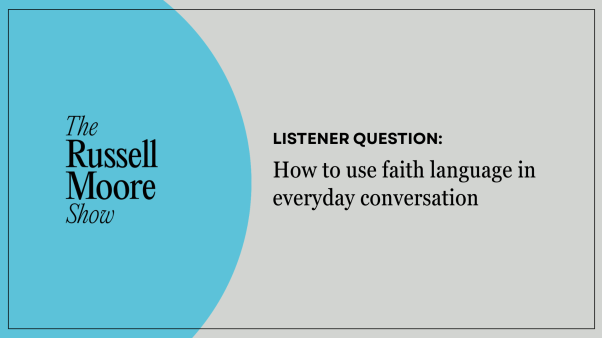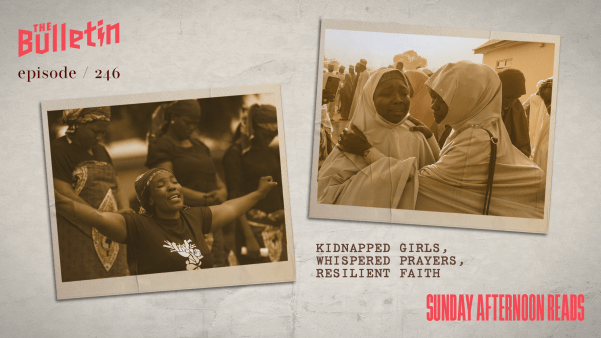The greatest social need in the world today is not HIV/AIDS outreach. It’s not hunger. It’s not global warming. Not ending poverty or eliminating malaria or tuberculosis. Not clean water. Not racial reconciliation. Not sexual trafficking. Not abortion. And it’s not peace in the Middle East, and not even world peace.
These are not unimportant social issues. They grab the heart of God. God’s compassion has always been focused on the poor and oppressed—something noted all through the Bible. So it’s no surprise that God instructs his people to “learn to do good; seek justice, correct oppression; bring justice to the fatherless, plead the widow’s cause” (Isa. 1:17, ESV).
And they have grabbed the hearts of evangelicals in a fresh way. One telling example: A decade ago, it was still rare to find an evangelical church with an HIV/AIDS ministry. Today, one can hardly find an evangelical church that doesn’t have or support one.
HIV/AIDS ministry is one book in a library of social action we have written recently. And it’s been noticed. Just last February, we felt our chest swell with pride when New York Times columnist Nicholas Kristof said:
Today, conservative Christian churches do superb work on poverty, AIDS, sex trafficking, climate change, prison abuses, malaria, and genocide in Darfur. … Today, many evangelicals are powerful internationalists and humanitarians.
Other examples abound in politics, foreign policy, and international justice. It’s been quite a ride on the racehorse of social action.
Despite the advances, none of this constitutes our movement’s greatest contribution to the world. None of these good works—nay, great works—deal with the most profound social problem facing humankind.
DIGGING OUT THE ROOT
That social problem is alienation from God.
It is in fact the first social problem. After Adam and Eve eat of the tree in the midst of the garden, the Lord God—with whom they have had warm fellowship—seeks them out. But they hide in fear and shame. From this, the biblical story unfolds to reveal murder, lust, greed, loneliness, pride, oppression, and a host of other evils that plague humankind.
The biblical picture is clear: The breakdown of society is rooted in the breakdown of our relationship with our Creator. And the biblical response is equally clear: The way out of social chaos begins with people being restored to God. This won’t solve all social problems immediately. But transformed individuals go hand in hand with transforming social networks.
Of course, this alienation is much more than a social problem. It is a fundamentally spiritual problem that constitutes humanity’s greatest crisis: billions of men and women who do not know the love and grace of their Creator. Some live in societies characterized by fear of the spiritual world. Others live in religious cultures where people are taught they must earn their way through heaven’s gates.
Many people live in ignorance of life’s richest possibilities—that they can know a loving God, and that his power can move within them. He calms fears, forgives guilt, and instills an unearthly joy. He establishes the lonely in the family of faith and gives life to the dying—life of startling and enduring dimensions, not just for individuals but also in the community we call the kingdom.
We are right to give so much of our energy to relieving social ills, but we must never forget that the greatest social ill has spiritual roots. John Green is the founder of Emmaus Ministries in Chicago, an outreach to male prostitutes. His ministry offers food, shelter, counseling, and an array of social services to help men move out of that degrading lifestyle. Some would think that is more than enough. But Green disagrees, saying, “We do violence to the poor if we don’t share the gospel with them.”
Throughout history, many groups within the commonwealth of Christianity have specialized in mercy and justice, and they have done marvelous things. Evangelicals have done their share as well. But the one thing evangelicals have done better (if not always perfectly!) than most other Christian movements is sharing the euangelion, the Good News that God loves and forgives us and invites us into his family, into his work, and into life abundant, now and forever. It is our unique charisma, our special gifting of God.
The mainline American churches up until the middle of the last century held in healthy missional balance social action and evangelism. But slowly the evangelistic mandate got squeezed out. A myopic concern for the social undermined the church’s spiritual mission. This has led to spiritual decline, from shrinking membership to a loss of spiritual vitality to faddish theology. It would be a shame if evangelicals did not learn from this sad history.
We are not calling for creation of more evangelistic institutions or more evangelistic tracts and techniques—we have plenty of each, thank God. We are not threatened by our newfound enthusiasm for social action, and in fact rejoice in it.
But we are urging that we not inadvertently “do violence to the poor.” We must enter into neighbor-loving outreach with a mindset that fully incorporates the greatest need we are called to meet.
Copyright © 2009 Christianity Today. Click for reprint information.
Related Elsewhere:
Christianity Today has previous editorials.










